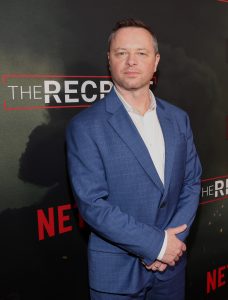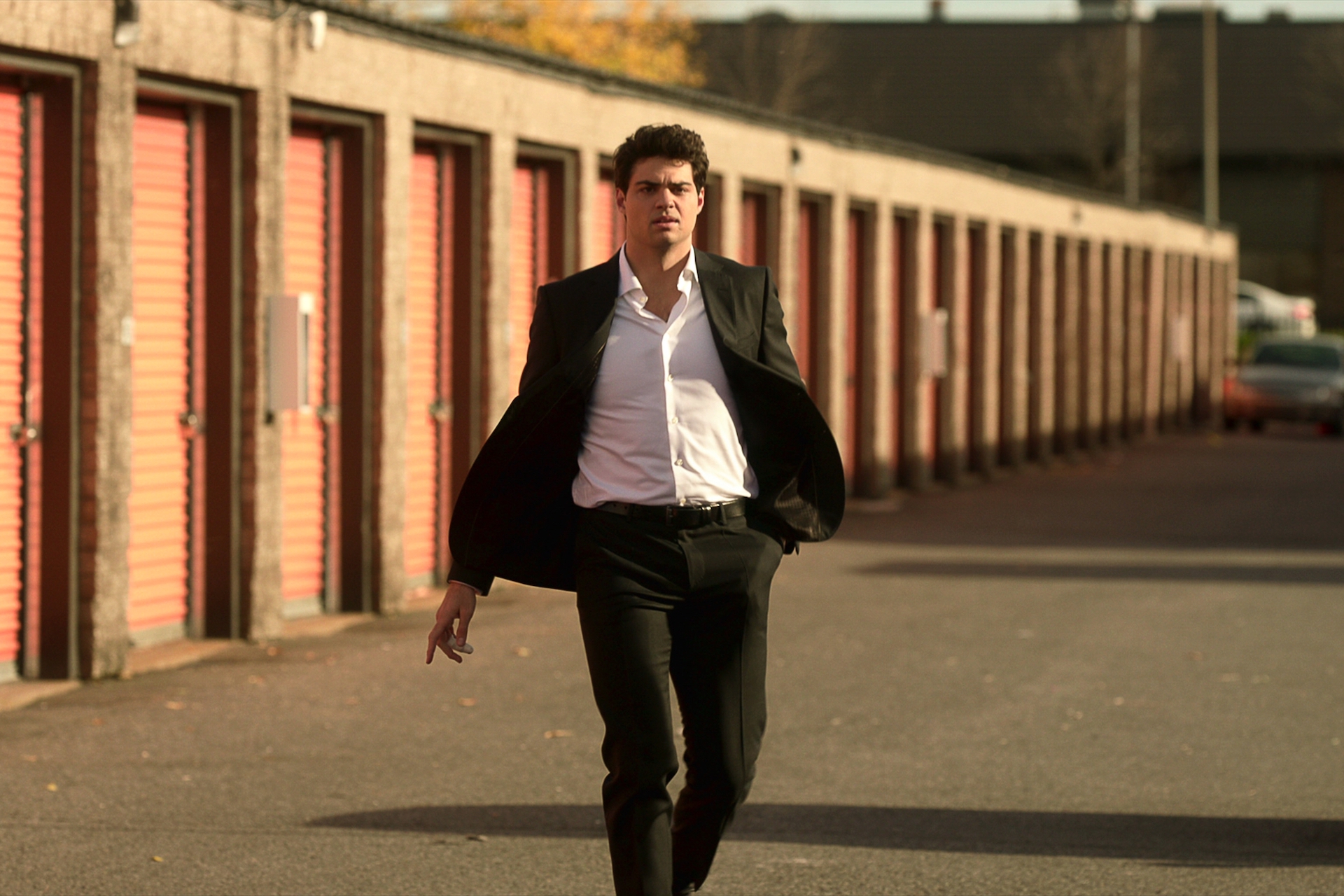Prolific screenwriter Alexi Hawley has built his television writing career largely on audience-drawing procedurals including The Rookie: Feds, Castle, and now, The Recruit. “There’s a natural story engine to these types of stories, especially on network television. Procedurals help you grab and keep an audience,” he added. “For the longest time, doctor, lawyer and cop shows were the meat and potatoes of television because they’re good standalone television which keep on generating many episodes.”
Television procedurals can easily slip into rigid structural templates with little room for individual writer flair. They typically run as case of the week for the A story, character personal issues for the B story and a running storyline (runner) as the C story. “It’s all about understanding the genre and then trying to deconstruct it,” said Hawley about adding a fresh spin on a familiar trope.
There are rules in every television genre, but you find small ways to turn them in a different direction. Hawley cites The Rookie: Feds which is essentially a “patrol cop show” when most procedurals are case of the week and shot in an office or police station. “This allows us to do things that are unexpected.”
In his new espionage show The Recruit, Hawley tackles the well-trodden turf of the CIA with an invigorating spruce up. “Typically, such shows are about thirty or forty something year-old men that are really good at their jobs, but facing some sort of personal crisis.” The Recruit takes Owen Henricks (Noah Centineo), a twenty-something kid who’s just out of law school and thrown in the deep end of something he doesn’t full understand and allows him to fail at being a spy.” This gives the show more latitude to tell a different version of the spy story. “At the same time, writers need to understand that audiences expect certain things within the genre so there are limits to how much you can transcend them.”

Alexi Hawley. Photo by Jesse Grant/ Getty Images for Netflix
Graymail
The initial idea behind The Recruit began when Alexi Hawley met a former CIA lawyer, Adam Ciralsky who advised him on the existence of a particular type of information line. “The inspiration was centered on graymail, which is blackmail with national security by the crazies.” It happens more than the CIA would care to admit. Nonetheless, cases must be investigated. It’s often unhinged mail from people detained in jail threatening to reveal critical state secrets if they aren’t released or other demands met. “Most are nonsense, but occasionally some pose a real threat. Assessing whether the threat was real and the subsequent response if it is, formed the DNA of The Recruit.”
The CIA is the post office with secrets – Adam Ciralsky
Hawley added some sparkling bells and whistles to make the CIA “post office” experience more visually kinetic on screen. He was cognizant that ultimately, a successful show comes down to character. Gimmicks won’t sustain a show beyond the first episode. “I pitched The Rookie as a character show masquerading as a cop show.” This guiding principle held true for when Hawley pitched The Recruit.
The intense energy of The Recruit is sure to keep viewers stuck to their seats as they track the exploits of Owen Hendricks as he gets in way over his head. “It’s not the structure of a murder happening in act one and the killer is caught in act six. In this show, every time someone gets out of their car, anything could happen.”
Once in the writers’ room, the writers decide what story they want to tell about each character using the explosive core energy of The Recruit. They can build and explosive plot around it. “What trouble are they getting into that’s about them and not the graymail?” The elevated tone of the show augments the solid foundation. Hawley weaves the spy trouble into the internal and external obstacles of the characters to propel the show.
The Recruit doesn’t rely solely on spy stories to make its case to viewers. “It’s ultimately about trust and leverage of both of friends and foes. It’s a show about hidden agendas, and if you wander into someone’s place without knowing it, there’s serious trouble.” Take a recruit out in the field during his first week on the job who thinks he knows everything and can handle anything, you have the makings of a great show. “The whole conceit of Owen’s character is someone who dives into the deep end just so he could see if he could get out.” He’s an adrenaline junkie who thrives on danger.
Each narrow, death-defying escape brings Owen an inflated confidence. Owen has a stark realization early on in the season where he realizes he’s wildly misjudged this approach to his new job. He has a lot to learn. “He’s a bit of chaos agent.” Owen often stands in his own way and can be his worst enemy.
Finessing The Tone
Alexi Hawley wrote the first two episodes before the formal writers’ room started, so each writer had a strong blueprint to work from both thematically and tonally. Despite the runway, Hawley conceded that writing the first three episodes was tricky as the writers mimicked and fine-tuned his original tone. “We internalize stories while we watch them, so we don’t truly don’t get the characters’ voices until we hear actors say the dialogue.” You’re teaching both the audience and the writers how to experience the show during the first season.

The Recruit. (L to R) Amelia Salazar (Kaylah Zander) & Walter Nyland (Vondie Curtis-Hall) Photo courtesy of Netflix
Similar to cementing the character voices, nailing the precise tone of The Recruit takes a few episodes to settle in. “Tone is not just about dialogue. It’s about action, music and editorial style,” he continued. Minor adjustments such character nuances or when a moment should be funny or high stakes are a constant manoeuvre in the writers’ room. Such issues are common, especially in first season TV shows until it finds its natural rhythm and sticks to it. “You can never sacrifice stakes for a joke. The minute, The Recruit stops becoming a dangerous show, the audience stops investing in it.”
Hawley is mindful of carefully assembling his writers’ room to lean into each one’s strengths. “We weren’t looking at writers coming in from a traditional angle of espionage tropes.” Each writer envisioned their own perspectives of The Recruit while upholding Hawley’s vision.
Alexi Hawley burns through story at a rapid pace in all his TV shows. “No scene is just about one thing. You’re always moving.” Despite the lack of commercial breaks in streaming television, The Recruit still has a five act structure. “The act breaks force you to twist and turn the story.” Twists can be a plot point or an emotional moment. Too many or too big action sequences will test the attention span of your audience. Grounded and smaller actions often have a bigger impact.
Hawley prides himself on being able to find humor in almost any situation in most of his writing no matter how dangerous the stakes. “I also like mashing up genres. Let the story be what it wants to be.”
Hawley is showrunning three shows – The Rookie, The Rookie: Feds and The Recruit. Is it like juggling chainsaws? “You need to hire really good people and let them be good at their jobs. You can’t do everything. You also need to be able to switch gears instantly between shows even as everything happens all at once.“
